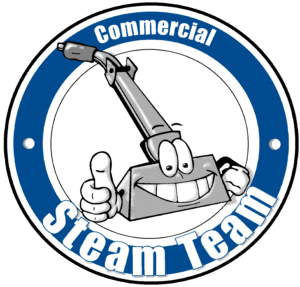When you pull out your couch to get that tennis ball your dog knocked underneath it in a rousing game of repetitive catch. You suddenly notice that the carpet underneath the couch looks completely different than the carpet in front of it. A few months go by and either your conscience or your partner begins nagging you to do something about it. “Don’t worry sweetheart, I will rent a rug doctor.” Famous last words. If it was that easy then everyone would do it.
This is one of the leading causes of rapid re-soiling in carpets today. The three reasons being;
- Operator error.
- No one should be expected to know what they are doing when trying to do a professional job on their first try.
- It takes days to do the best job possible with a rental unit. Many people don’t realize this until they are in the middle of the job and rush through it after that (understandable).
- Equipment power.
- Rental equipment is limited by the electrical power source available and can’t risk tripping circuit breakers in the homes and apartments it is used in.
- Rental equipment is designed with more emphasis on its durability than its effectiveness. After all if it broke every time it was rented, it would eat up all the profit. Meaning that it’s going to be underpowered.
- When more than 5 percent of the moisture is left in the carpet, it takes a long time to dry and will affect the carpets resistance to re-soiling.
- People tend to beat up rental units. After all, they don’t own them, and most people tend not to respect other people’s property. This means the equipment’s performance will likely be sub-par, something that a rental company is not as likely to be concerned about as long as it is still rentable.
- Available cleaning agents.
- Professional carpet cleaners stopped using “shampoo” or oil based products decades ago. The rental units often still use these.
- Rental units often rinse with regular water which is not capable of balancing the Ph. levels of the cleaning agents that were used, even if they were not oil based.
The truth is that most people who attempt to clean their own carpets do not ever attempt it again. Or they get stuck in an endless cycle of cleanings that become more and more frequent over time as the residue builds up in the carpet. Most professional carpet cleaners know (and those that don’t, should) not to use oil based products or “shampoo’s”. Few suppliers even carry those products anymore. Also professional carpet cleaners are the only carpet cleaners that know the proper mixing ratios, have the expensive direct drive truck mount equipment to do the job (this varies from company to company). Truck mounted units are not limited by circuit breakers and some even run directly off of the V8 engine.
In summary, DIY carpet cleaning is a buyer-beware sort of thing. If you’re serious about cleaning your carpet, you should hire a serious professional to do so. Have a great day!
